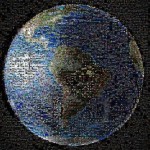Companies whose businesses make their homes online want everyone in the world to have access to the internet. That’s how they make money. In some ways, everyone stands to benefit from this ambition, perhaps most of all GIS and mapping specialists. Because in order to achieve this goal of world wide web colonization, these companies […]
Feature – Oil and Water: Mapping the South China Sea
The turmoil in the South China Sea, one of the most strategic and debated bodies of water in the world, presents a unique challenge when it comes to mapping. The interaction of different layers provides interesting, if not clear, correlations. The same question is often asked: who owns the ocean? At least, who owns this […]
Is Sustainable Tourism Sustainable? Mapping Outcomes Using GIS
Tourism represents one of the top five exports for 83 percent of all countries and is the main source of foreign currency for 38 percent of countries. The industry continues to experience growth even in poor economic times. As consumers become more aware of the environmental impact of their actions, a trend toward “sustainable tourism” […]
Location, Location, Location: Uses for GIS in Health Care
There is a lot of talk about Big Data and what it means. Geographic Information Systems is a perfect platform for taking advantage of this data. A great deal of mapping data is public information, and can be accessed freely. So what are some of the ways we are using this data, and what opportunities […]
GIS and History: Using the Past to Inform the Present
Using the power of Geographic Information Systems to track trends in everything from demographic information to pesticide and chemical use like the Pesticide Use Reporting (PUR) system in California, used in the study I talked about here
Feature – Epic Win: Using GIS and Gaming to Save the World
Balancing protection of the environment and the needs of a particular community is kind of like a game. Each decision affects one, the other, or both, and opens up a new set of alternatives. The answers are not always right or wrong. but instead are subjective. The more innovative the answer, the more likely it […]
Mapping the Cause: Using GIS to Determine Potential Causes for Cancer
Much talk lately in the tech world is related to Big Data and how useful it really is. The debate centers not only around making relationships, but how to determine which relationships are significant. How do we make all the demographic data we’ve gathered meaningful?







